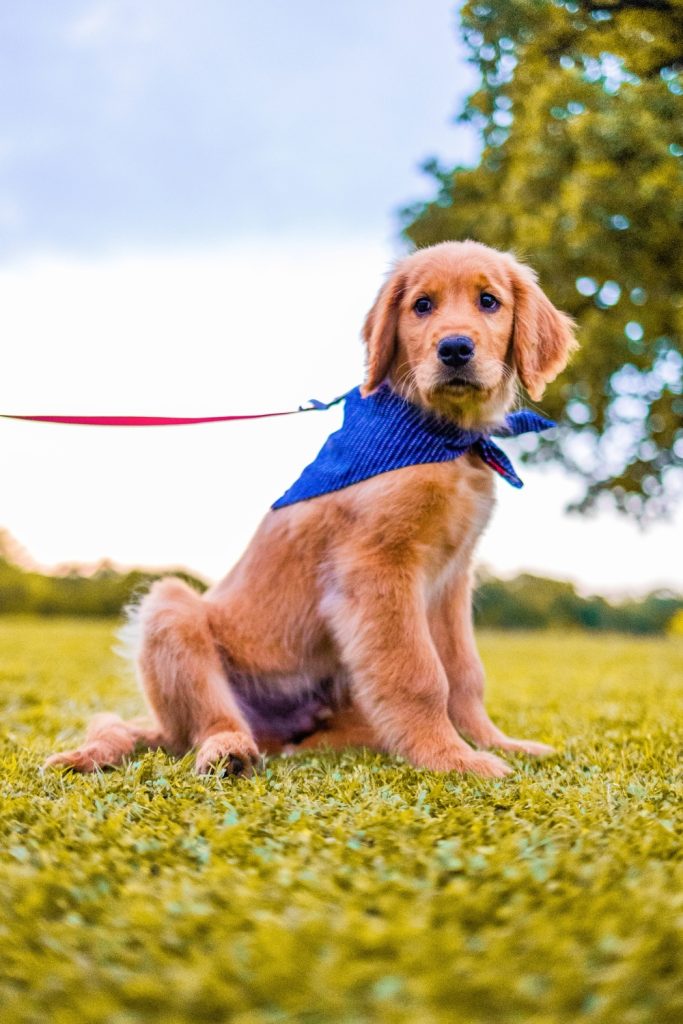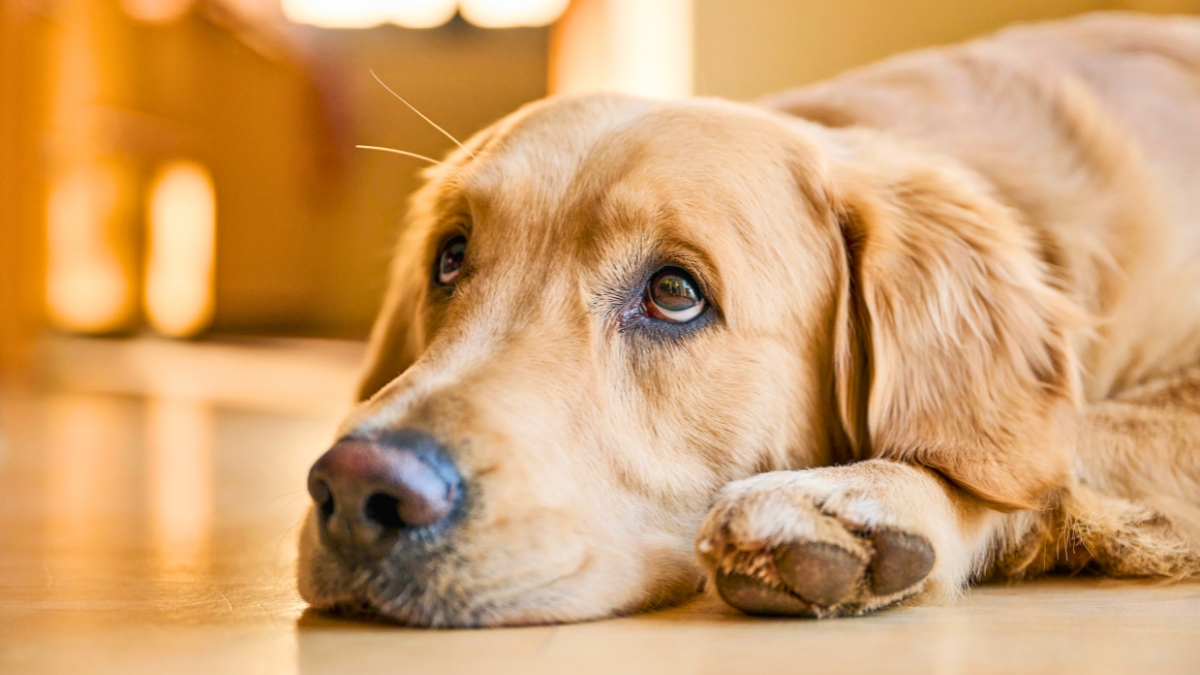Golden Retrievers have earned their spot as one of the most popular dog breeds in the world.
Their friendly demeanor, high intelligence, and undying loyalty make them cherished members of any family. But as much as they bring joy into our lives, owning a Golden Retriever is a big responsibility.
To ensure your furry friend lives a happy, healthy, and fulfilling life, it’s important to understand their needs and avoid certain mistakes.
Here are 10 things you should never do to your Golden Retriever, along with what you should be doing instead.
1. Skipping Daily Exercise
Golden Retrievers are bundles of energy. They need regular, consistent exercise to stay happy, healthy, and well-behaved.
If you fail to give them enough exercise, not only can they become frustrated and act out, but they also risk developing serious health issues like obesity, joint problems, and heart disease.
Plus, a Golden that hasn’t burned off enough energy might channel that pent-up energy into chewing your favorite shoes or digging up your backyard.
What to Do Instead:
Aim for at least one to two hours of physical activity each day. This can be a combination of walks, playtime, and even swimming—something most Golden Retrievers absolutely love.
Be sure to vary their activities to keep things interesting. Taking them on a hike or to a dog park where they can run and socialize with other dogs is a great way to meet their exercise needs.
2. Neglecting Mental Stimulation
While Golden Retrievers are known for their love of physical activity, many owners forget how crucial mental stimulation is for these intelligent dogs.
Golden Retrievers have sharp minds, and if they’re not given enough challenges, they can quickly become bored. And when they’re bored, it often leads to behaviors like chewing up furniture, digging, or excessive barking.
Imagine spending hours in a room with nothing to do—that’s how your Golden feels without something to engage their brain.
What to Do Instead:
Keep your Golden’s mind active with puzzle toys, games, and training exercises that challenge them. Try mixing things up by hiding treats around the house for a game of hide-and-seek or use interactive toys that require them to solve puzzles to get their food.
Regular training sessions that introduce new tricks or commands are also a great way to keep them mentally engaged.
Pro Tip:
Many Golden owners find that puzzle feeders are a perfect way to not only feed their dog but also give them the mental stimulation they need.
It taps into their natural instincts to work for food and keeps boredom at bay.
3. Ignoring Separation Anxiety
Golden Retrievers are known for forming deep bonds with their families, which can sometimes lead to issues when they are left alone. If not trained properly, they can struggle with separation anxiety.
This anxiety often shows up as destructive behavior, such as chewing furniture, excessive barking, or even attempting to escape when left by themselves.
To help prevent this, it’s important to start leaving your Golden alone for short periods while they are still puppies, gradually increasing the time as they get used to being alone.
Along with this, it’s crucial to create an environment where they feel safe and secure in your home.
Pro Tip:
A snuffle mat can be a great tool for keeping your dog entertained while you’re away. It encourages them to use their nose to search for treats, which engages their mind.
After they finish, they often feel more satisfied and relaxed, making it easier for them to stay calm when left alone.
4. Ignoring Dental Care
One of the most overlooked aspects of caring for a Golden Retriever is dental hygiene. Just like humans, dogs can develop plaque, tartar, and gum disease if their teeth aren’t properly cared for.
Poor dental hygiene can lead to more severe health issues, including tooth decay, painful infections, and even problems that affect other parts of the body, such as heart or kidney disease.
What to Do Instead:
Brushing your dog’s teeth should be part of your regular routine. Use a dog-safe toothpaste and aim to brush their teeth at least a few times a week.
Additionally, consider giving them dental chews that help reduce plaque buildup or schedule professional cleanings with your vet.
Example:
Veterinarians recommend brushing your dog’s teeth 3 times a week to prevent gum disease and other dental issues (source).
Taking care of their teeth can save you from expensive vet bills and improve your dog’s overall quality of life.
5. Lack of Socialization
Golden Retrievers are social butterflies. However, if they aren’t exposed to different people, animals, and environments early in life, they can become fearful or anxious.
Unsocialized Goldens may develop behavioral problems such as aggression towards strangers or anxiety in new situations. This can make outings and interactions stressful for both you and your dog.
What to Do Instead:
The key to having a well-adjusted Golden Retriever is early and consistent socialization. Introduce them to a variety of environments, people, and other dogs from a young age.
Take them on walks in different neighborhoods, visit dog parks, and invite friends over. The more experiences they have, the more confident and calm they’ll be.
Example:
Golden Retrievers that are well-socialized from an early age tend to be calm, friendly, and adaptable, making them much easier to handle in public or around new people.
6. Using Harsh Punishment
Golden Retrievers are incredibly sensitive dogs. They respond best to positive reinforcement, and harsh punishments can damage the trust they have in you.
Yelling, hitting, or other negative corrections can make them fearful or anxious and may even lead to more behavioral problems.
Golden Retrievers thrive on love and praise, so it’s important to avoid harsh discipline.
What to Do Instead:
Focus on using positive reinforcement techniques when training your Golden.
Reward them with treats, praise, or playtime when they do something right. If they make a mistake, redirect their behavior and reward them when they get it right.
Example:
Studies have shown that dogs trained using positive reinforcement are more obedient, have fewer behavioral issues, and form stronger bonds with their owners (source).
7. Neglecting Grooming Needs
Golden Retrievers are known for their gorgeous, flowing coats, but that beauty comes with a responsibility. Their thick fur requires regular grooming to prevent matting, tangling, and even skin infections.
Neglecting grooming can also lead to excessive shedding and an unhealthy coat.
What to Do Instead:
Brush your Golden Retriever’s coat at least once a week, and more frequently during shedding seasons.
Regular grooming sessions not only keep their coat healthy and reduce shedding but also give you an opportunity to check for any signs of skin issues or parasites.
Don’t forget about other grooming needs like trimming nails, cleaning ears, and giving them the occasional bath.
8. Feeding Table Scraps
Golden Retrievers have a big appetite and will often look at you with those irresistible eyes when you’re eating, hoping to score a bite of whatever’s on your plate. However, feeding them table scraps isn’t just a bad habit—it’s potentially harmful.
Human food can lead to obesity and digestive issues in dogs, and some foods, like chocolate, grapes, and onions, are toxic to them.
What to Do Instead:
Stick to high-quality dog food that provides all the nutrients your Golden needs. While treats are fine in moderation, it’s best to avoid giving them table scraps altogether.
If you feel compelled to share, stick to dog-safe vegetables or fruits that are appropriate for them, but even then, moderation is key.
Example:
According to the Pet Obesity Prevention Foundation, a staggering 56% of dogs in the U.S. are overweight or obese.
Obesity increases the risk of chronic conditions like diabetes and heart disease, dramatically shortening your dog’s lifespan (source).
9. Skipping Training
Golden Retrievers are incredibly trainable dogs, but without consistent training, they can develop some annoying habits, like pulling on the leash or jumping up on people. A lack of training can make everyday life more difficult for both you and your dog.
Training isn’t just about teaching commands—it’s about keeping them mentally stimulated and helping them be well-behaved members of the family.
What to Do Instead:
Start with basic obedience training from a young age, and be consistent with it. Commands like “sit,” “stay,” and “come” are essential for your dog’s safety.
Even as your Golden gets older, continue to introduce new commands or tricks to keep their minds sharp.
Well-trained Golden Retrievers are more likely to have positive interactions with other dogs and people, and they’re generally much easier to manage in different situations.
A trained dog is a happy dog!
10. Neglecting Regular Vet Visits
Golden Retrievers are prone to certain health issues, such as hip dysplasia, heart disease, and cancer. Regular vet check-ups are critical to catching these problems early before they become serious.
Skipping vet visits can mean missing out on early detection, which can lead to more complicated and costly treatments later on.
What to Do Instead:
Schedule regular vet visits, at least once a year, for general check-ups. For older Goldens or those with health conditions, you may need to schedule visits more frequently.
Preventive care can make a world of difference in your Golden’s health.
Early detection of conditions like hip dysplasia or heart disease can dramatically improve your dog’s quality of life and longevity.
Regular vet check-ups are essential for catching these problems early.

Owning a Golden Retriever is a joyful and rewarding experience, but it comes with important responsibilities.
By avoiding these common mistakes and providing proper care, you can ensure that your Golden Retriever stays healthy, happy, and a cherished member of your family for years to come.
